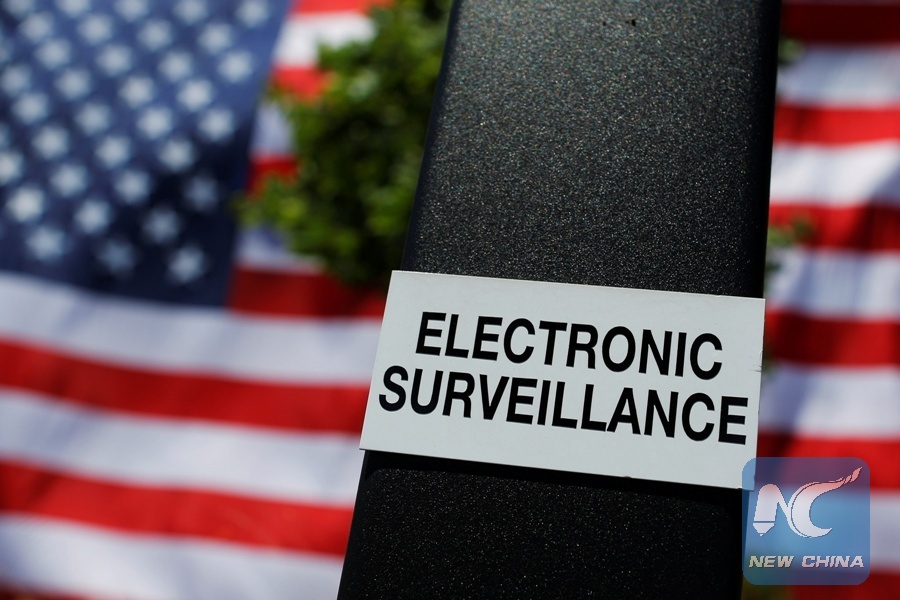
File Photo: A notice of electronic surveillance is posted near a 95-by-50-foot American flag unfurled on the side of an apartment complex, a replica of the "The Great Flag" that was spun, woven, dyed, constructed and displayed on the same building by Amoskeag Manufacturing Company in 1914, in Manchester, New Hampshire, U.S., June 14, 2017. (Xinhua/REUTERS)
WASHINGTON, Jan. 11 (Xinhua) -- The U.S. House of Representatives on Thursday approved a bill to extend by six years a key spying program allowing the government to collect communications concerning foreign intelligence targets without a warrant.
The vote for the expiring Section 702 of the Foreign Intelligence Surveillance Act was 256-164.
The legislation is now headed to the Senate, where the majority of lawmakers reportedly could vote in favor, too.
The U.S. government has been highly criticized for secretly collecting phone and online data on U.S. and foreign citizens, following the 2013 leaks by the intelligence contractor Edward Snowden.
In 2015, U.S. Congress voted to end a controversial surveillance program under Section 215 of the Patriot Act, which authorizes the U.S. National Security Agency's secret phone metadata collection on Americans.
Under Section 702, the U.S. government is supposed to target foreigners overseas, but Americans' communications -- even those in the United States -- reportedly can be snared if they are part of conversations that the targets are having.
"Actually, today's vote was about retaining the power to spy on Americans without a warrant," the American Civil Liberties Union tweeted.
It gives "the Trump administration greater authority to spy on Americans, immigrants, journalists, dissidents, and everyone else," it added.
"Many representatives who have expressed concern about this administration's abuses still voted for this bill. Today, their concern rings more hollow."
Before approving the extension of the law, the House voted 233 to 183 to reject an amendment to require a warrant before intelligence officials spy on U.S. persons.

